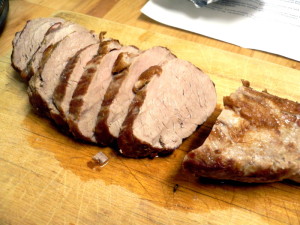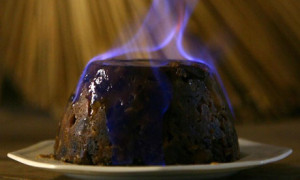 I suspect that on New Year’s Day, you have better things to do than reading a blogpost at the Risky Regencies! All the same, I’m here, so whenever you are reading this, I want to say thank you for reading during this past year, and I wish you a new year filled with joy, health, luck and prosperity!
I suspect that on New Year’s Day, you have better things to do than reading a blogpost at the Risky Regencies! All the same, I’m here, so whenever you are reading this, I want to say thank you for reading during this past year, and I wish you a new year filled with joy, health, luck and prosperity!
I hope you ate food on New Year’s Eve that might be thought to bring those in the coming year. My guests last night dined on:
Shrimp: symbolizing long life (Japan)
Cheeses: gold colored foods symbolize prosperity and good fortune (Asia & South America)
Soup: sweet potato and pumpkin bisque (sweet and also gold colored, both considered “lucky” for New Year’s)
Pork Tenderloin: pork, and pigs, symbolize both prosperity and moving forward in the new year (Western World) 
Sliced carrots with waterchestnuts: foods that resemble money –coins for instance –are lucky
Parmesan potatoes: gold, again (we added a bit of food coloring), and besides, yummy!
Poppyseed muffins: poppyseeds are considered lucky in Poland.
Bread & butter pickles: coin-shaped, more or less!
For dessert we had plum pudding (with hard sauce) just because we hadn’t used all of it at Christmas, but that fits the tradition of “finishing up old matters” before the year ends. 
We toasted the new year with champagne, of course. Then just after midnight we each had twelve grapes meant to signify how sweet or sour our 12 months of the year are going to be (Spain, and Spanish influenced countries). I don’t have a clock that strikes (you’re supposed to eat them on the strokes), and we figured we had a better chance of tasting a sweet year if we ate them after the tart champagne!
Mind you, these aren’t Regency customs and beliefs, just ones culled from all over the world. But the universality of some kind of traditions to bring in the new year is quite consistent. In Regency England, country people would be the most likely to observe quaint practices like opening the back door to let the old year pass out at the first strokes of midnight, and then opening the front door as the strokes ended to let the new year in. Or to make a big production over who the “first-footer” (first visitor to set foot in the house) after midnight on New Year’s Eve would be. Or to make certain nothing of substance should leave the house during New Year’s Day –in some locales, housekeepers even retained the dust sweepings and food scraps from the day until January 2!
How did you ring in the new year? Will you do anything special today? Are there old customs or traditions your family observes? However you celebrate, or even if you don’t, I wish you a year full of delightful reading and discovery of many new books and authors for your pleasure! Stay tuned here at the Riskies and we’ll try to help you with that.
Happy New Year!










